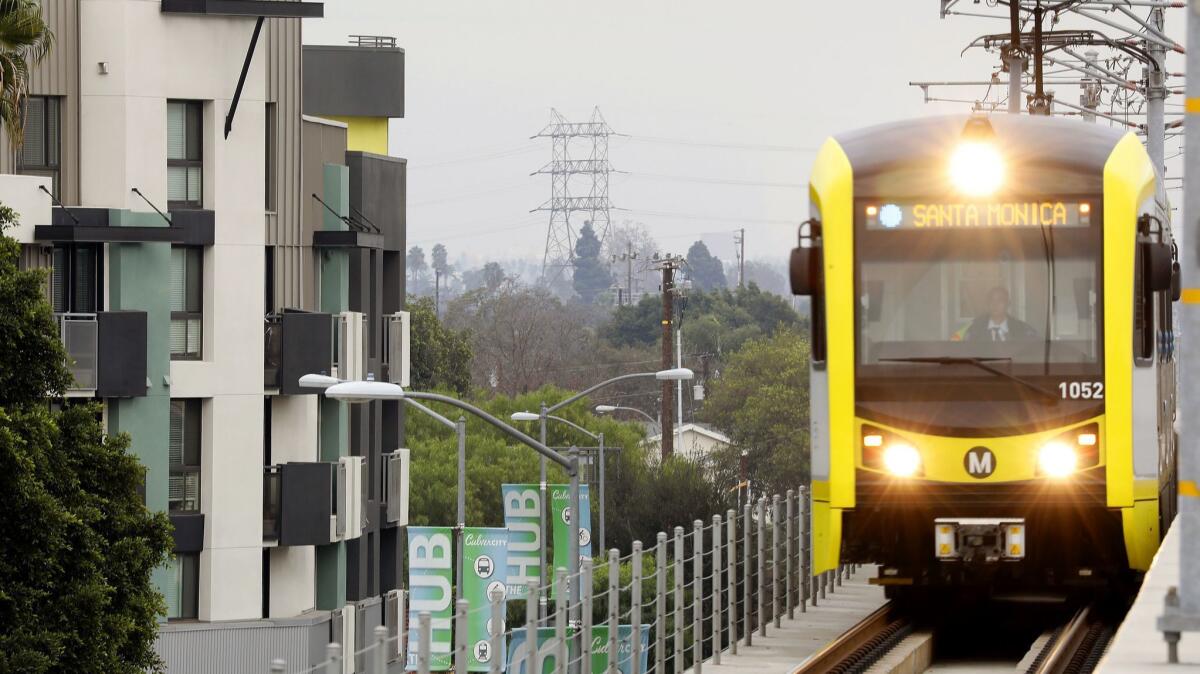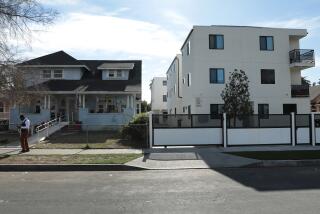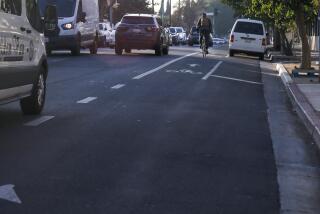Op-Ed: One year ago, L.A. approved an ambitious housing plan. What’s happened since? Nothing

One year ago this week, Los Angeles took what appeared to be a significant step towards combating its housing affordability crisis. By a unanimous vote, the L.A. City Council approved the Expo Corridor Transit Neighborhood Plan, a set of updates to the city’s zoning code that would make it legal to build mid-rise apartments and mixed-use retail near five Westside Expo Line stations, including — boldly — some areas currently limited to single-family homes.
Though the plan is not a silver bullet for L.A.’s housing and traffic problems, it has the potential to reshape the Westside. The L.A. Department of City Planning estimated that it could create 6,000 new homes and space for 14,000 jobs near the Expo Line by 2035. L.A. can’t solve its traffic nightmare without encouraging more Angelenos to live and work near transit. And with L.A. County suffering from record-high homelessness and a shortage of over 500,000 units of affordable housing, the plan’s requirement that developers set aside a percentage of new homes for low-income residents would improve affordability and equity.
But since the City Council vote last July, how many new homes have been built under the auspices of this plan? Zero. How many have been permitted? Zero. How many have even been proposed? You guessed it, zero.
Like many efforts to increase L.A.’s housing supply, the Expo Line plan has fallen prey to vocal NIMBY opposition — and our local leaders have been unable, or unwilling, to fight back. The plan’s failure to launch showcases why decisive action on housing is needed on a statewide level.
Like many efforts to increase L.A.’s housing supply, the Expo Line plan has fallen prey to vocal NIMBY opposition — and our local leaders haven’t fought back.
Last October, an organization called Fix the City filed a lawsuit demanding that the Expo Line plan be canceled, claiming it violates the city’s General Plan. It cited slow fire and police response time due to busy streets as a primary concern, arguing that “traffic congestion in West L.A. diminishes quality of life and street capacity is well short of adequate.”
In other words, L.A. shouldn’t implement a plan that would reduce congestion without first somehow reducing congestion.
Are you confused? I am.
Westside traffic is, indeed, terrible. That’s further reason to support the Expo Line plan. Building bigger roads only encourages more driving and gridlock (for evidence, look no further than the recently widened 405). To have less traffic (and improve emergency response times), we need less driving and more transit ridership.
Like other NIMBY groups, Fix the City frequently uses litigation to tie our local government in knots. In 2015, the City Council approved Mobility Plan 2035 to improve street infrastructure for bikes, buses and pedestrians. In response, Fix the City sued, delaying the plan’s implementation by a year. When a 2013 plan to allow more apartments in Hollywood gained approval, Fix the City sued. It has also sued to halt apartment construction in Koreatown and Hollywood.
The Department of City Planning’s press office denies that Fix the City’s Expo Line lawsuit is slowing the housing and development plan. It says that a technical review is underway. When the review will be finished, or when construction will start, no one will say.
Click here for the full Livable City archive »
It’s hard to avoid the conclusion that the department is slow-walking the plan as the suit unfolds. That’s why the state must act. Gov. Gavin Newsom has recognized the urgent need for more housing across California, calling for 3.5 million new homes by 2025. Senate Bill 50, a much-debated proposal to legalize more housing near transit and job-rich neighborhoods throughout the state, has the potential to help deliver on Newsom’s ambitious goal. It would be like the Expo Line plan, but for all of California.
SB50 is broadly popular (a poll found that 66% of Californians support it), yet it met with significant opposition from suburban homeowners and from our city government, causing a vote on the bill to be tabled until 2020.
The City Council opposed SB50 on the grounds that it deprives Los Angeles of control over its own planning decisions. But as we’ve seen, our local government has failed to use that power expeditiously to increase the housing supply. It has allowed itself to be held hostage by red tape, or more likely, by NIMBY fears, complaints and lawsuits.
We can’t afford to let another year go by without a bold solution to our housing crisis.
Anthony Dedousis is director of research and analysis for Abundant Housing L.A. and an Expo Line commuter.
Follow the Opinion section on Twitter @latimesopinion or Facebook
More to Read
A cure for the common opinion
Get thought-provoking perspectives with our weekly newsletter.
You may occasionally receive promotional content from the Los Angeles Times.






